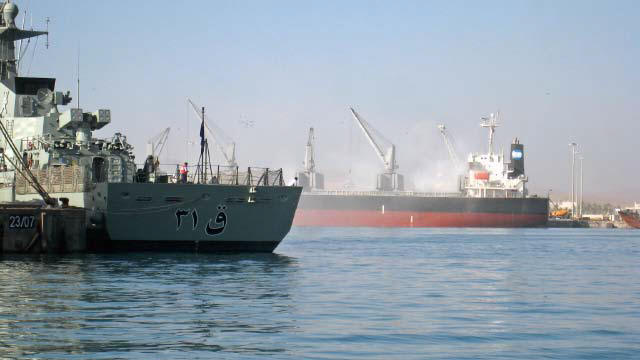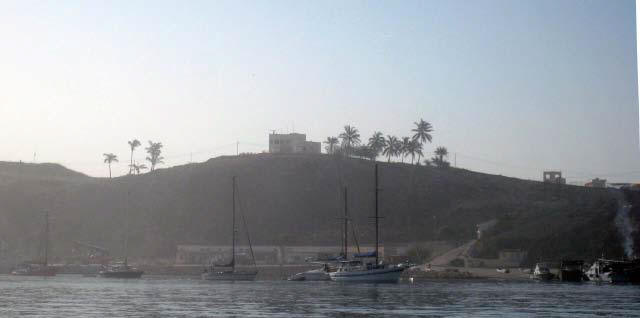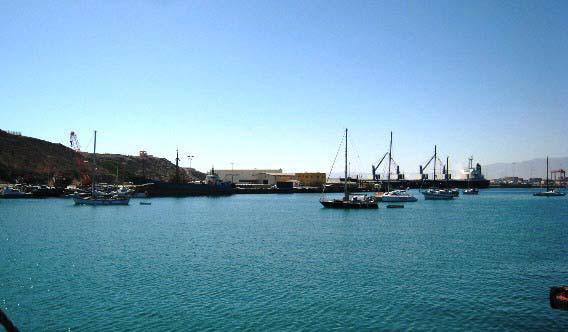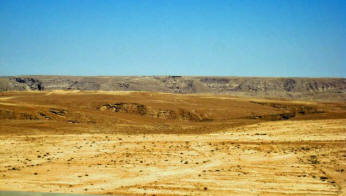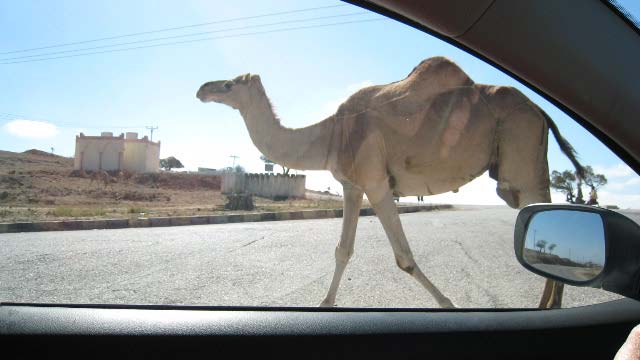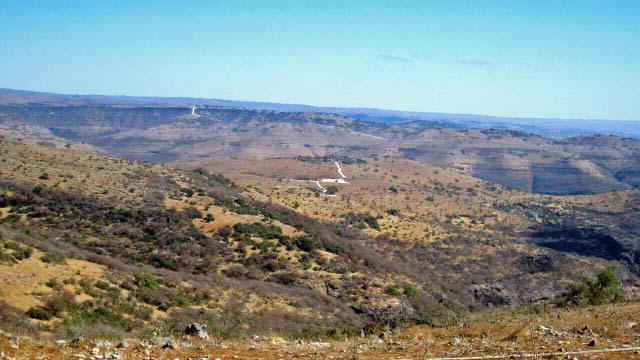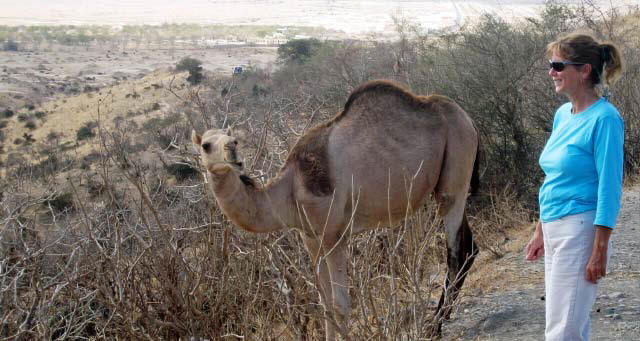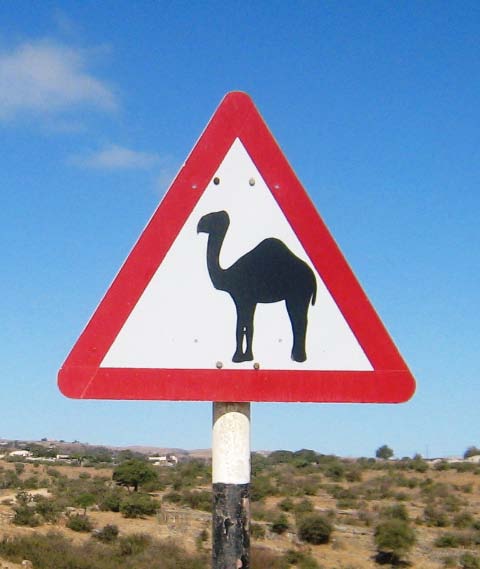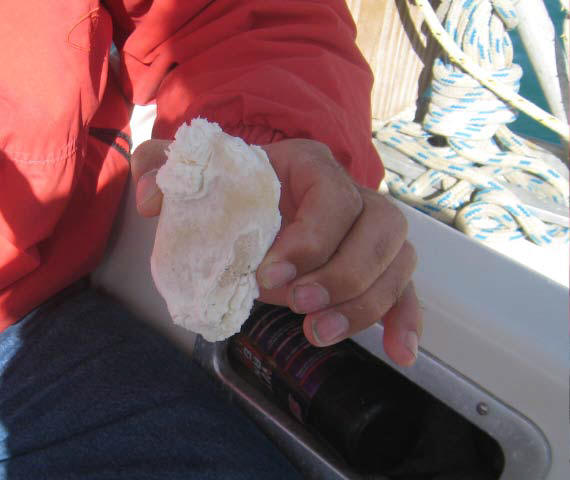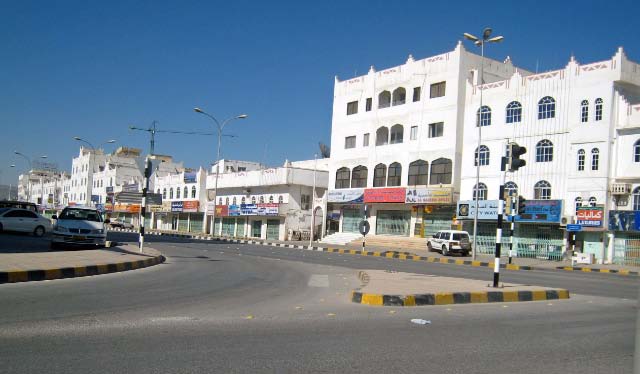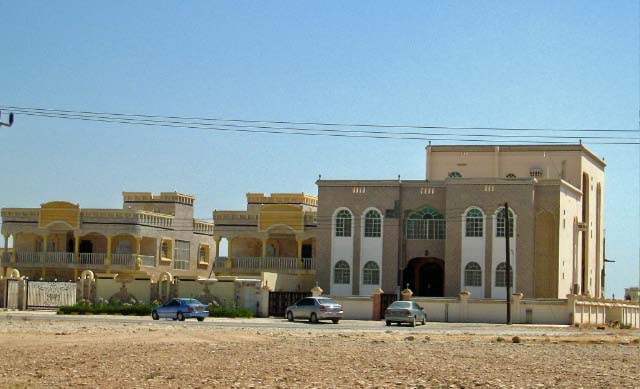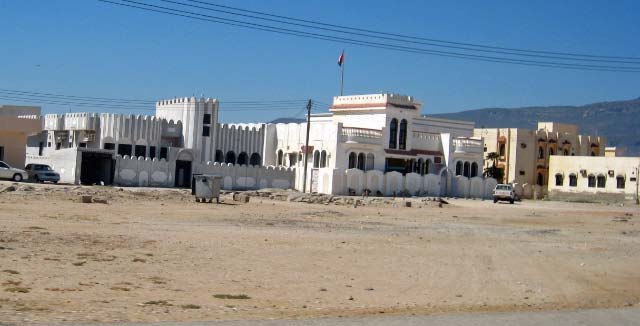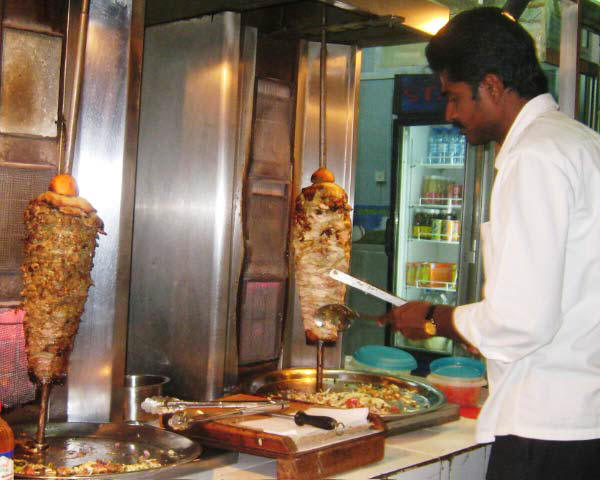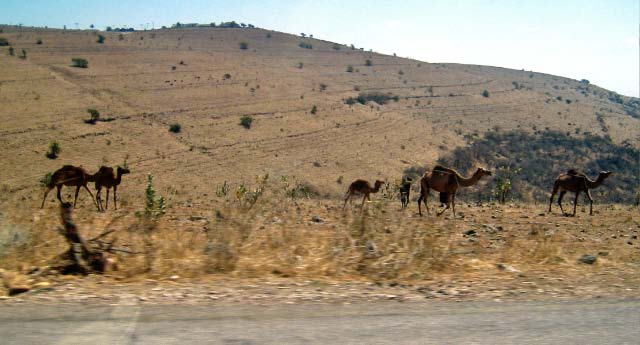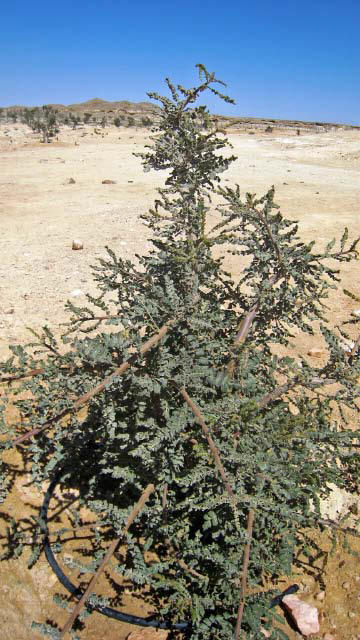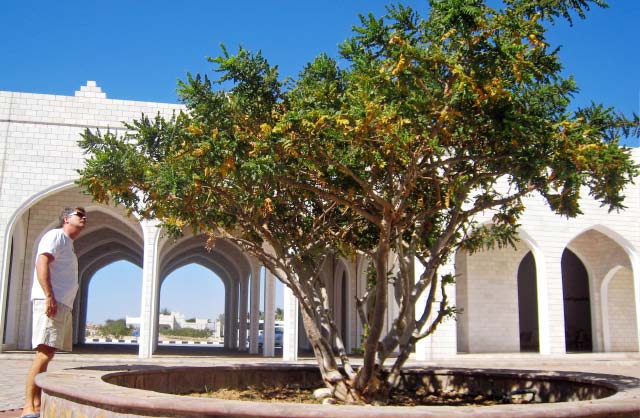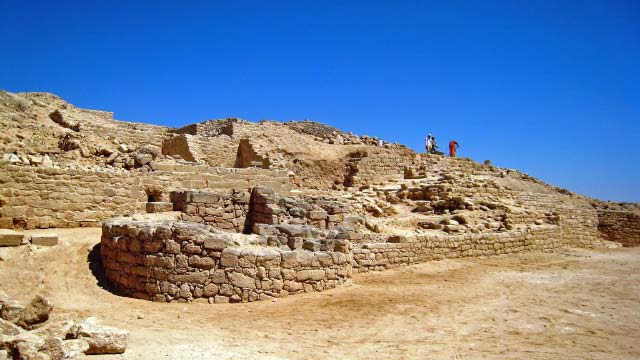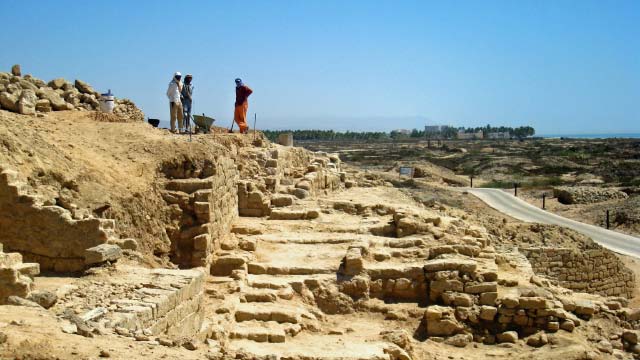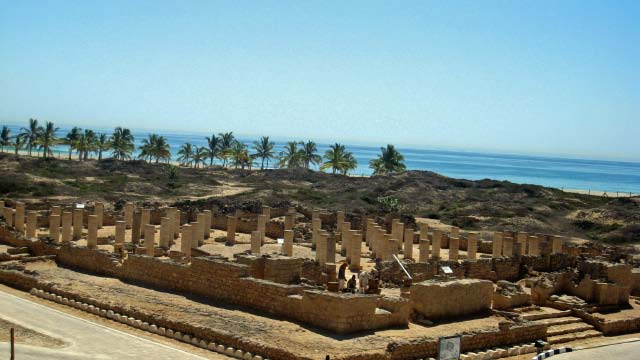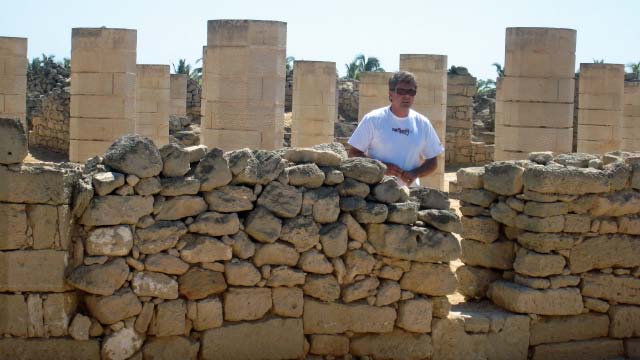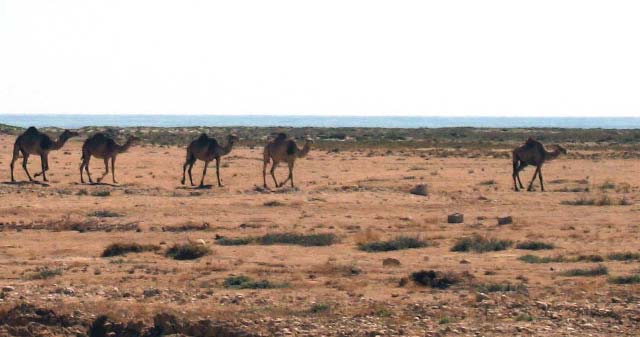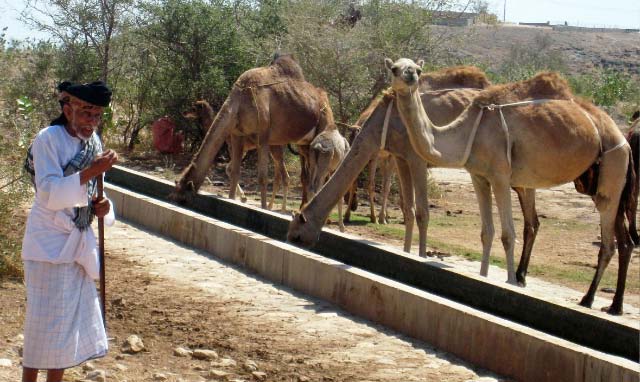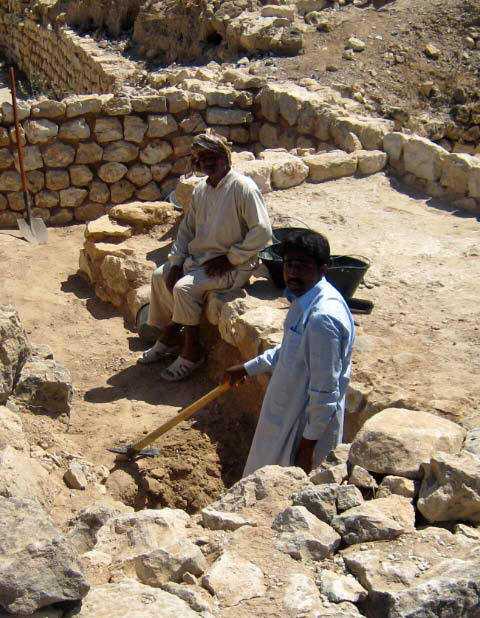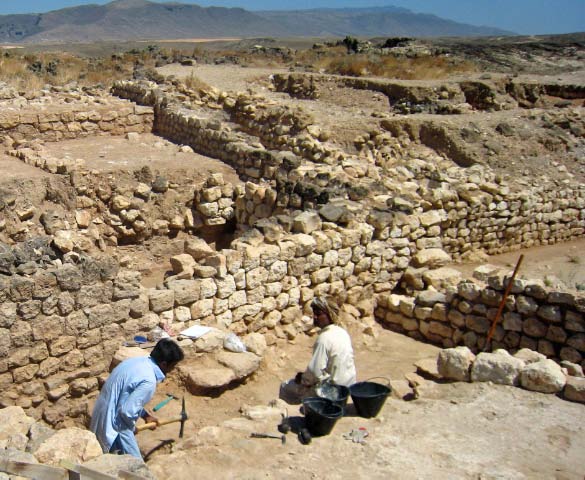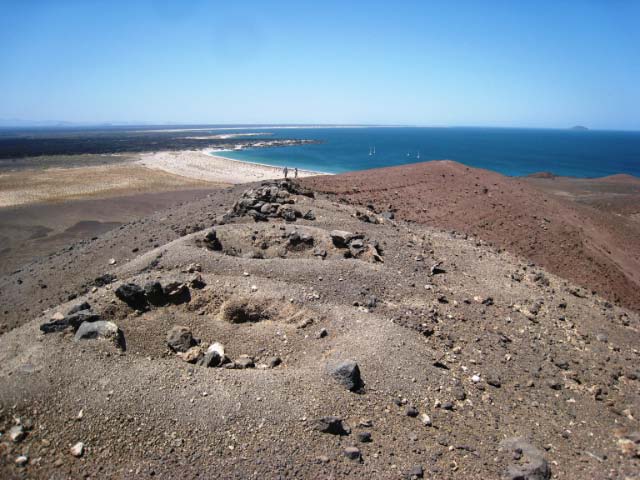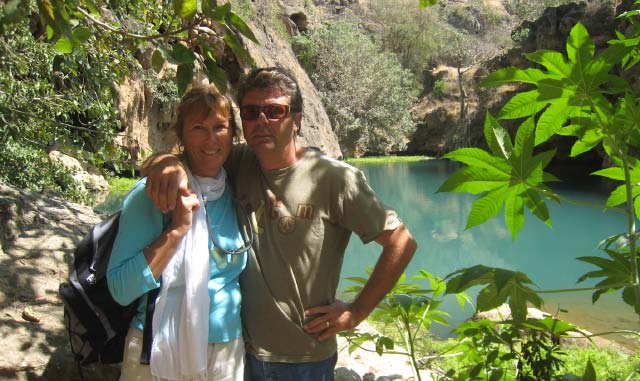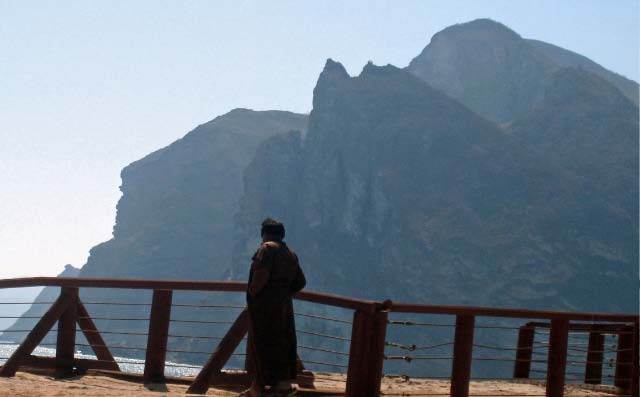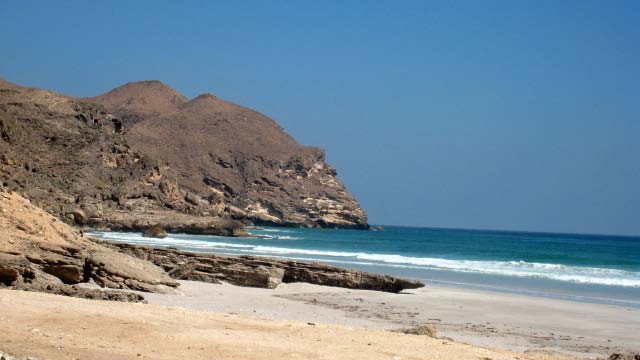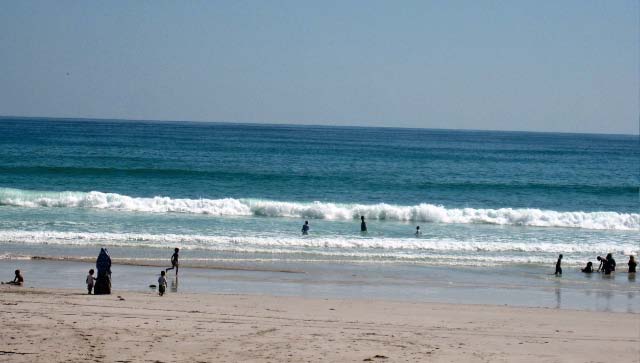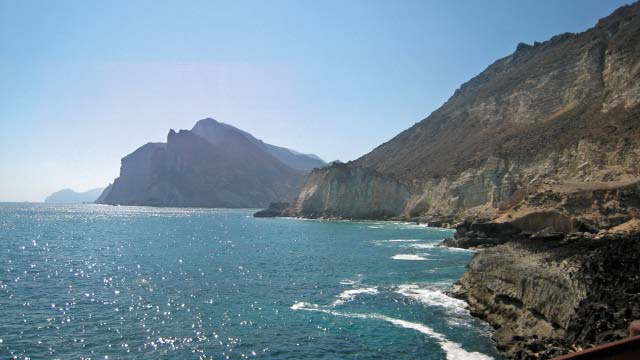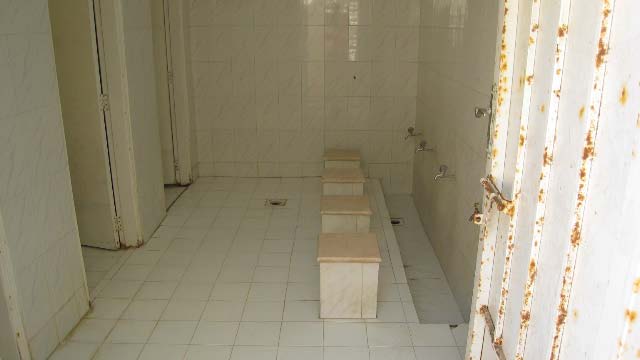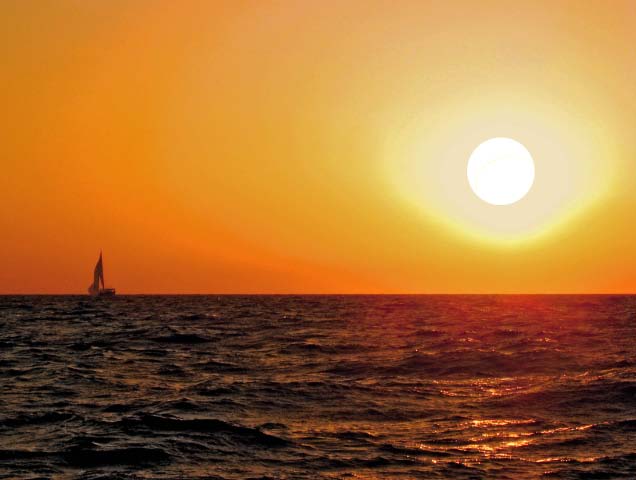|
|
 |
OMAN - THE RED SEA |
|
Since Friday is the Muslim holiday, we hoped that we would not have to check in until the following day cause all we wanted to do was shower and SLEEP!!! We had managed to make some water during the last few miles of our sail into Port. I was looking so forward to a shower after 10 days without but didn't realize what a shock the cold water would be!!!! Not a problem in Thailand but it is downright cold here. Ended up with a quick sponge bath. Add fixing the water heater to the list. But we no sooner got the anchor down when the customs and immigration officials appeared alongside, ready to board. I scurried to put on my Muslim attire (over the shoulders, over the knees). After our initial paperwork was completed we were instructed to go ashore and complete our checkin at the Customs Office. They gave us only an hour to get the sails stowed, get the dinghy off the deck, blow it up and get the motor on, go to shore and walk the mile to the offices. Much to our luck a fellow yachtie came over and offered to drive us to Customs and then give us a tour of the town. |
Touring by Car February 9. 2008 We arranged to share the rental of a car with Stardust as the town centre was a fair distance from the harbour. We drove into the city to explore. Oman was certainly our introduction to the strict Muslim culture. The men wear long white linen robes that looked like nightshirts, and turbans or hats, the women always in the black burkas and veils usually with just a slit for their eyes, but sometimes their faces are fully covered. You never seen women during the day, only at night when we saw a few of them carrying out their domestic chores of shopping. They do not respond to eye contact and do not like their photos taken. Women are seen only with women, men only with men, and there seems to be no communication in the streets between the sexes. |
Shopping You mainly saw men during the day who wore . Men would sit and drink coffee at the local outside “cafes.” Salalah town itself was neat and tidy, but very dusty, with a lot of construction work going on. There was one large “hypermarket” called Lulus, which was very good – otherwise lots of small shops huddled together. There was an absolute plethora of hairdressers (for men only!) and laundries – they lined each side of the street. |
February 10/ 2008 Even with the rental car we found it difficult to obtain the materials required to rebed our hatches and fix all the leaks, get our sail repaired and parts sourced. After driving around Salalah all day with the dead motor that is supposed to drive our bilge pump, we were stymied, although we had visited at least 20 electrical, automotive, mechanical, etc. shops. The mention of "DC" produced a look of complete puzzlement. And no one has ever heard of SIKAFLEX which we desperately need to seal all the leaks. We were not the only ones with these issues as there were now about 15 boats jammed into the little crowded anchorage, all in need of repairs after our gruelling passage. One trimaran was dismasted, with no alternative other than to try and ship the boat home. We have sampled Lebanese, Indian and Arabian, all reasonably prices. |
|
Feb 12, 2008 In the harbour were reported sightings of dolphins, a huge turtle, and manta rays. I am not sure how they could survive under the constant oil slick and garbage floating in the bay. The Pilot boats seemed to come and go at all hours, and along with the incredible surge, the anchorage was quite rolly at times. |
Most of the boats have arrived now, about 25 in a very tiny anchorage, all licking their wounds from the passage. One trimaran lost his rig and many are repairing sails! We are all anchored only meters apart, the harbour master constantly requesting that we get even closer together to allow for incoming ships. Slack tide is quite distressing as we play bumper boats! |
|
Onward through the Dhofar mountains, which I imagined might be greener in monsoon season. We found a Frankincense Forest, fenced off and tended by a caretaker. The area is a World Heritage site as there are not many of these once thriving trees left. |
||
|
We stopped at The Land of Frankincense Museum where there were excellent displays of ancient archaeological findings and it was interesting to learn more about the history of Oman. For sale were some handicrafts as well as Frankincense, a resin burnt as incense for medicinal and religious purposes. Since it is believed to eliminate evil spirits, we decided we needed to purchase some for the boat! There was also a Maritime Museum displaying models of the old ships that traded throughout the Middle East as well as displays of the various kinds of fishing boats.
|
||
Khor Rori A rocky road led us to another World Heritage site, the old port where ships brought their bounty to trade for Frankincense. The aromatic gum was one of the ancient world's most sought-after substances and it kept southern Arabia wealthy for quite some time at the end of the 4th century BC.
Great quantities of copper, iron and bronze objects from the 1st |
||
The site was crawling with workers delicately restoring the surrounding walls and buildings that overlooked the sea. |
||
|
Feb 16 Departure postponed for another day. While waiting for Billabong and Djarrka to get ready, we took a drive with Stardust along the coast of the Arabian Sea east of Oman. The landscape was considerably greener with much of the area irrigated to grow corn, mangos, coconuts and other crops. |
Feb 17
Well, all our repairs are done, our
group has gathered together and now we are waiting for wind.
Just like the farmers...not enough rain, too much rain! Anyway,
none of us have enough fuel to motor 700 miles so we wait! |
|
|
Oman has been an interesting country
but we are very ready to move on as we have a long way to go to
reach the Med in a very short period of time! From Oman, and certainly Aden onwards, a wide group of about 30 will be sharing the challenges of cruising 2000nm up some of the remotest waters, with a reputation for piracy, hostile winds, hassling bureaucracies, ongoing conflicts and sand storms. |
|
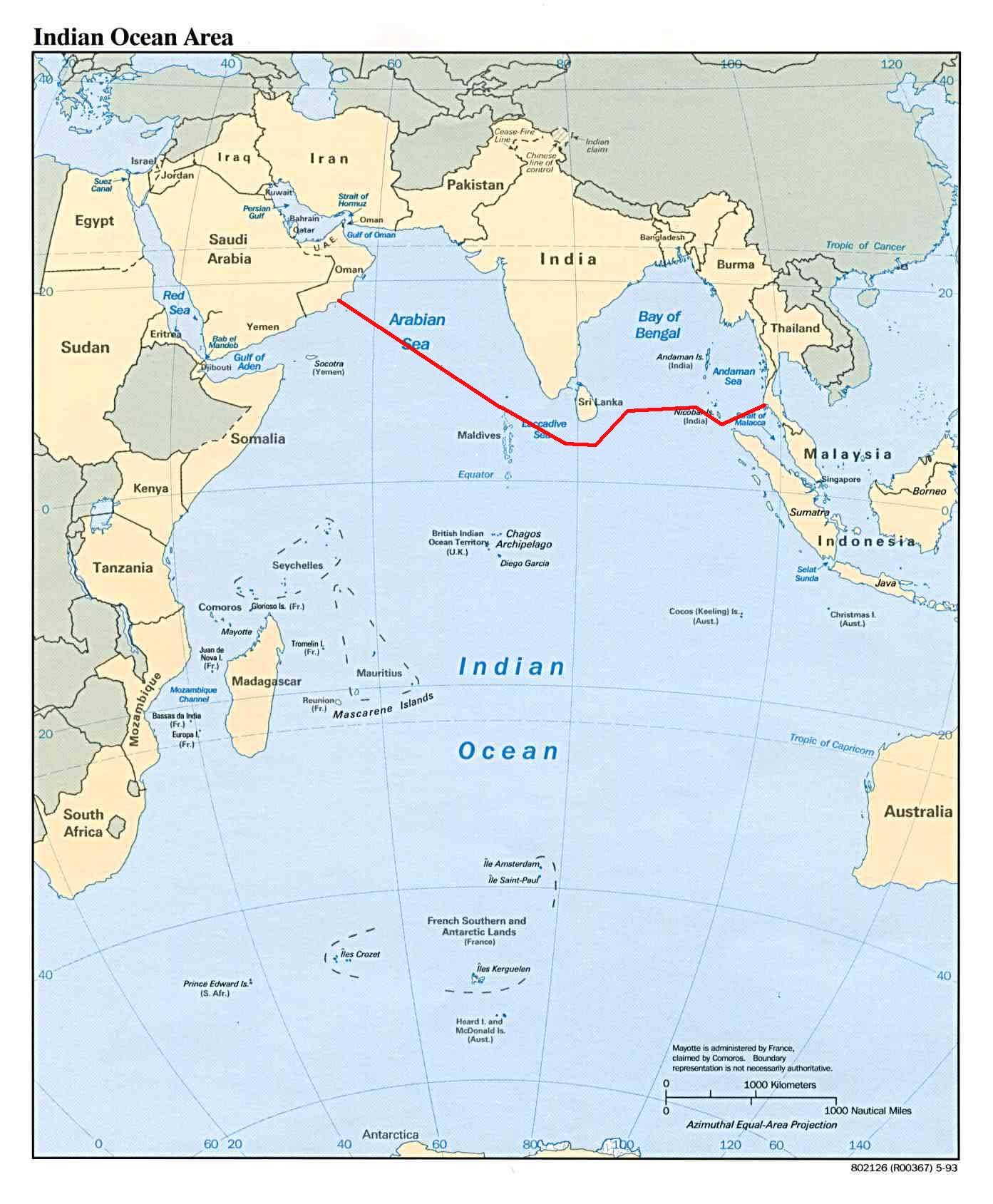
 SALALAH,
OMAN
SALALAH,
OMAN